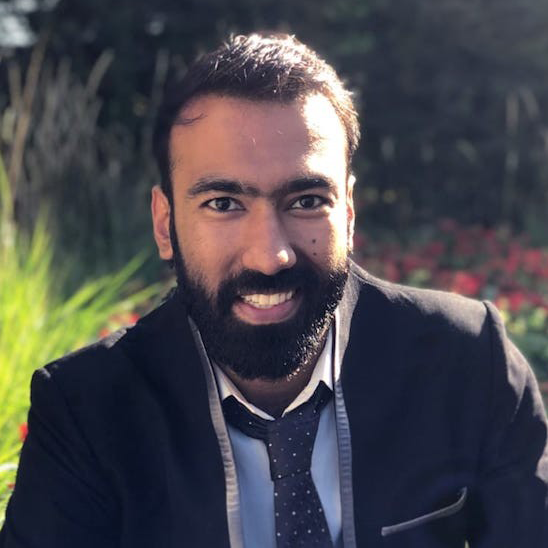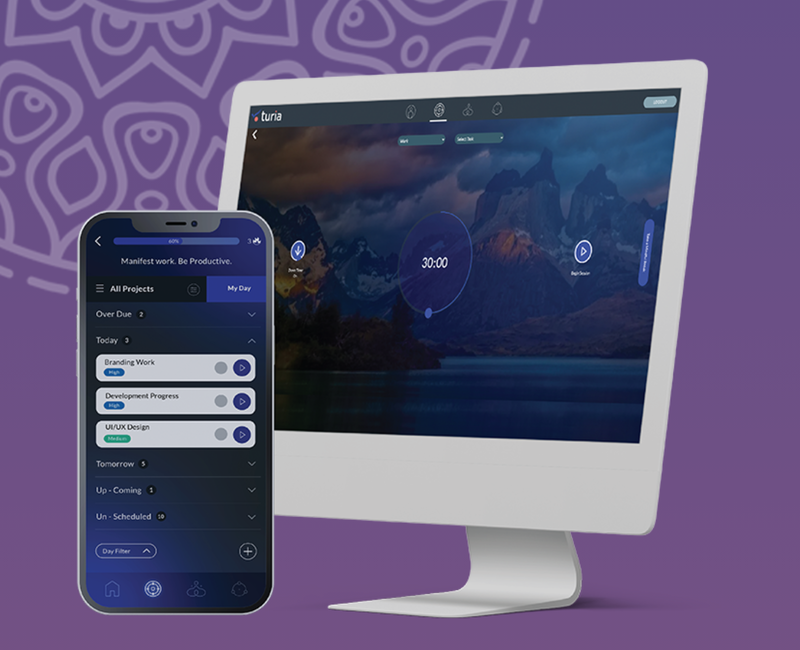CS&E grad student targets ‘mindful productivity’ with Turia app

Rahul Bhojwani named finalist in the U’s Acara Challenge
Rahul Bhojwani has always been interested in self-optimization. As an undergrad studying computer science in India, he set up his own automation tool that used Python code to prioritize his task list on Google Sheets. Bhojwani’s interest in data science and efficiency ultimately led him to pursue grad school at the University of Minnesota Twin Cities.
Now, the computer science & engineering Ph.D. student is a finalist in the U of M Institute on the Environment’s 2021 Acara Challenge, a competition for projects that address social or environmental problems.
Bhojwani’s entry is Turia, a web browser app he designed aimed at increasing productivity through mindfulness, which is essentially the act of being present in the moment.
“Turia is trying to go deeper in understanding and solving the problem of stress, distraction, and burnout that happens with digital work,” he explained.
That problem has become more evident during the COVID-19 pandemic—with millions of people experiencing Zoom fatigue and endlessly scrolling Twitter or streaming TV shows instead of, he noted, doing what they actually want or intend to do.
Bhojwani will present his pitch to judges at a virtual reception on April 21 for the chance to win up to $5,500.
The path to productivity
Bhojwani works with associate professor Paul Schrater, who has a joint appointment in the University’s Departments of Psychology and Computer Science & Engineering. That pairing was what initially made him want to join Schrater’s lab.
“I always used to contemplate the human mind, or what happens when I’m distracted or what happens when I procrastinate and all that stuff,” Bhojwani said. “And it's a psychological problem, right? It's a combination of psychology and data science.”
Inspired by his own methods of work optimization and what he learned from Schrater, Bhojwani created Turia.
Bhojwani calls Turia more of a “task execution tool” as opposed to a task management tool. It allows you to time your projects using the Pomodoro Technique, which breaks down work into intervals with short breaks.

“Once you run a timer, subconsciously your mind stops multitasking,” Bhojwani explained. “Otherwise, you're thinking about how you have to reply to that email and all those things, but the moment you start working on a task, you are in the zone.”
Once your time is up, the app recommends “mindfulness breaks,” which could range from stretching exercises to deep breathing—anything to help you re-center your focus. Turia also hosts “accountability rooms,” where you can invite colleagues or friends to keep each other motivated while completing tasks. In the future, Bhojwani plans on creating a feature that blocks notifications from your phone to keep you from being distracted.
Decreased burnout, increased motivation
Bhojwani emphasizes that Turia doesn’t have to be used only for professional work. Any task will do, even personal projects or hobbies like reading or writing. The app is ultimately designed to help its users reclaim their attention and navigate an increasingly digital world.
“With so much going on, our ever-decreasing attention span, and work from home bringing up new challenges, ultimately we are not in proper control of our own selves,” Bhojwani said.
“It’s easy to run away from things that you really want to do—let's say you want to write a book,” he said. “It’s hard to achieve that, and in order to not have those thoughts of ‘I cannot do it,’ it's easy to stick to things like Netflix or social media.”
While Turia is just a side project for now, Bhojwani plans to keep studying the intersection of mindfulness and computer science in the future. And he’ll continue to optimize the app over time.
After getting his Ph.D., Bhojwani said he might pursue a career in industry, but he is an entrepreneur at heart. Who knows—one day, you might see his face on the cover of Forbes.
Story by Olivia Hultgren